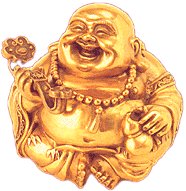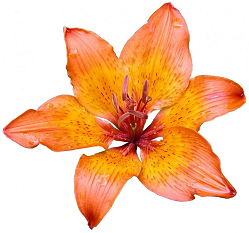|
|



|
|
HOME
Meditation What is Meditation? Power of Now Concentration & Insight Law of Attraction J Krishnamurti Tao Te Ching Dhammapada Buddhist Classics
|
Random Image
Meditation
What Is Meditation?
Conversation between Jiddu Krishnamurti
& Professor Allan W. Anderson
...continued from part ten
Anderson: The word vacation says it all
Krishnamurti: Yes.
Anderson: Doesn't it.
Krishnamurti: Absolutely.
Anderson: To vacate is to exit into space.
Krishnamurti: Space.
Anderson: But then we go from one hole to another.
Krishnamurti: To another hole.
Anderson: Yes.
Krishnamurti: If that is clearly perceived in myself, I see the thing operating in my daily life, then what takes place? Space means silence. If there is no silence there is direction, it is the operation of will, "I must do, I must not do, I must practise this, I must get this", you follow? The should be, should not be, what has been, what should not be, I regret. All that operates. Therefore space means silence inwardly.
Anderson: That's very deep. Very, very deep. Archetypally we associate manifestation as over against latency with sound.
Krishnamurti: Yes, sound.
Anderson: And what you have said puts the whole thing into astonishing...
Krishnamurti: Silence isn't the space between two noises. Silence isn't the cessation of noise. Silence isn't something that thought has created. It comes naturally, inevitably as you open, as you observe, as you examine, as you investigate. So then the question arises, can there be silence, without a movement. Movement of direction. Movement of thought, movement of time. Silence. Now, that silence, can that operate in my daily life? I live in the field of noise as knowledge. That I have to do. And is there a living with silence and at the same time the other? The two moving together, two rivers flowing in balance. Not division. You follow? In harmony. There is no division. Is that possible? Because otherwise, if that's not possible, to be deeply honest I can only live there in the field of knowledge. I don't know if you see?
Anderson: Oh yes, yes.
Krishnamurti: So, for me it is possible, therefore, I am not saying that out of vanity, I say this in great humility. I say that is possible. It is so. Then what takes place? Then what is creation? Is creation something to be expressed - in paint, in poem, in statue, in writing, in bringing about a baby? Is that creation? Does creation need, or must it be expressed? To us it must be expressed - to most people. Otherwise one feels frustrated, anxious, I am not living. You follow? All that. So what is creation? One can only answer that if one has really gone through all this. You understand, sir? Otherwise creation becomes a rather cheap thing.
Anderson: Yes, it becomes, in terms of the word expressed, simply something pressed out.
Krishnamurti: Pressed out, of course.
Anderson: That's all.
Krishnamurti: That's all.
Anderson: Yes.
Krishnamurti: Like the literary people who - some of them - are everlastingly in battle in themselves, tension and all that, and out of that they write a book, become famous.
Anderson: Yes, the psychological theory that works of art are based on neurosis, which means I am driven.
Krishnamurti: Yes, so what is creation? Is it a flowering in which the flower does not know that it is flowering?
Anderson: Exactly, exactly.
Krishnamurti: Have I made it clear?
Anderson: Yes, you've made it very, very clear. All through our conversations the one word that has, for me, been like the clean blade of a two edged sword has been this word "act".
Krishnamurti: Yes, sir.
Anderson: But not act over against inaction.
Krishnamurti: No, no, no, no.
Anderson: No, not action as over against the philosophical term of its opposite, passion, which is a different use from the one you were using in our conversations. But sheerly act.
Krishnamurti: Act.
Anderson: Sheerly act.
Continue to next part...



Contact • Feedback • Typo • Privacy • Home